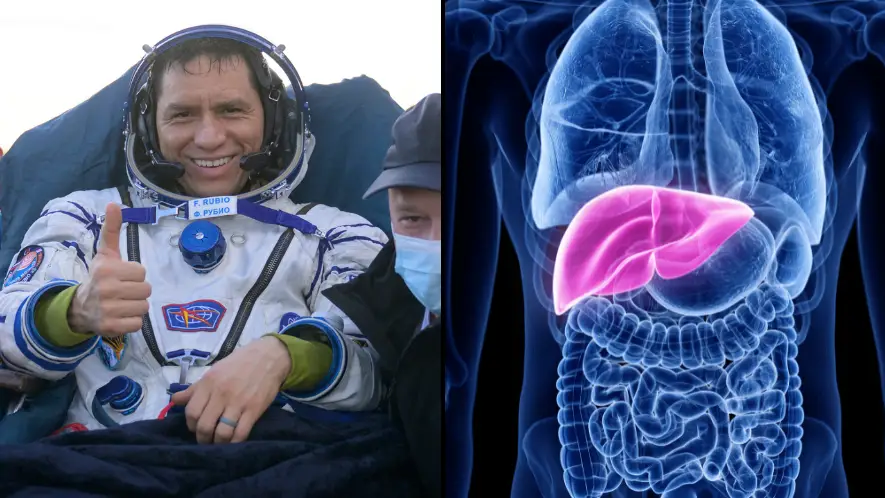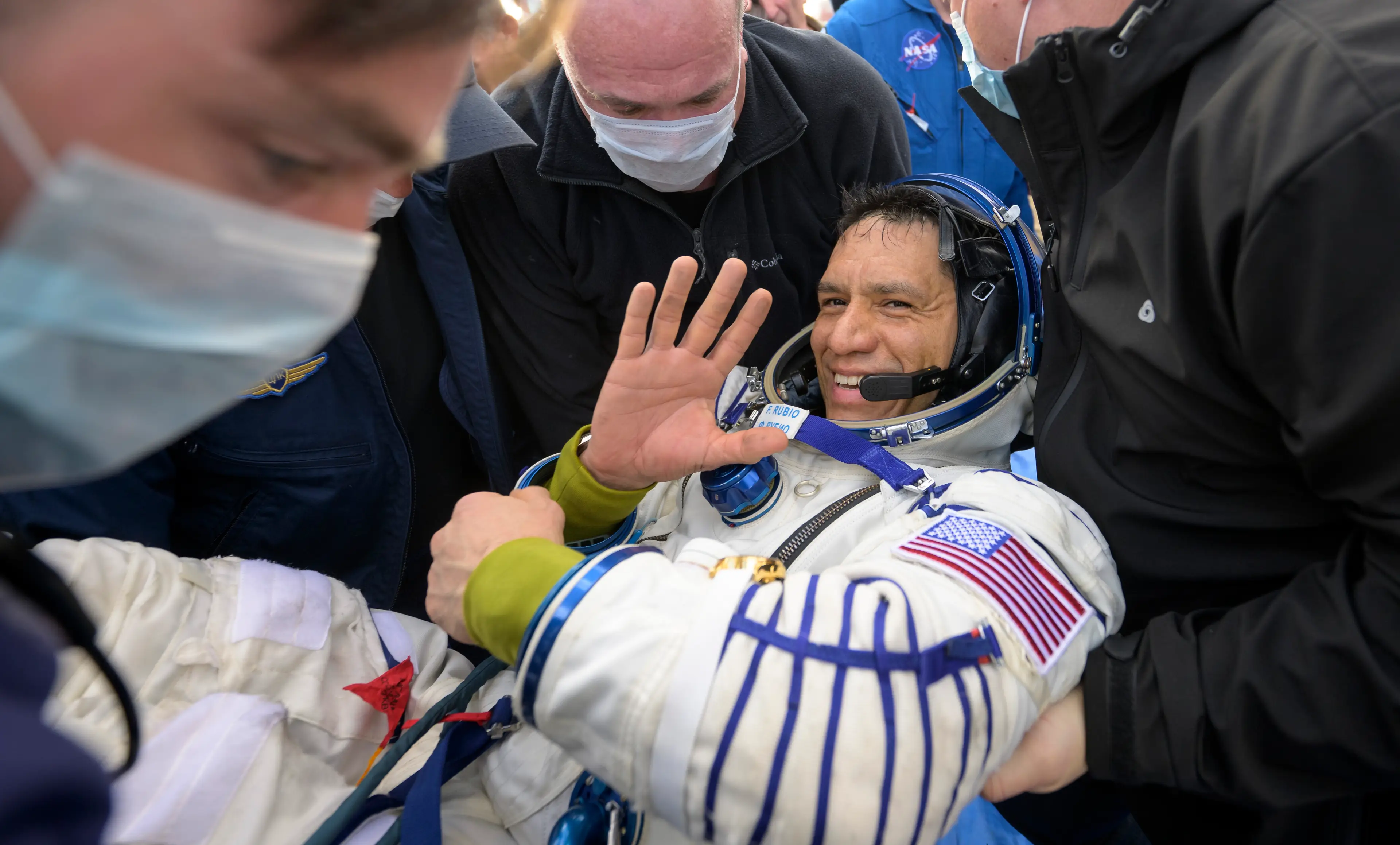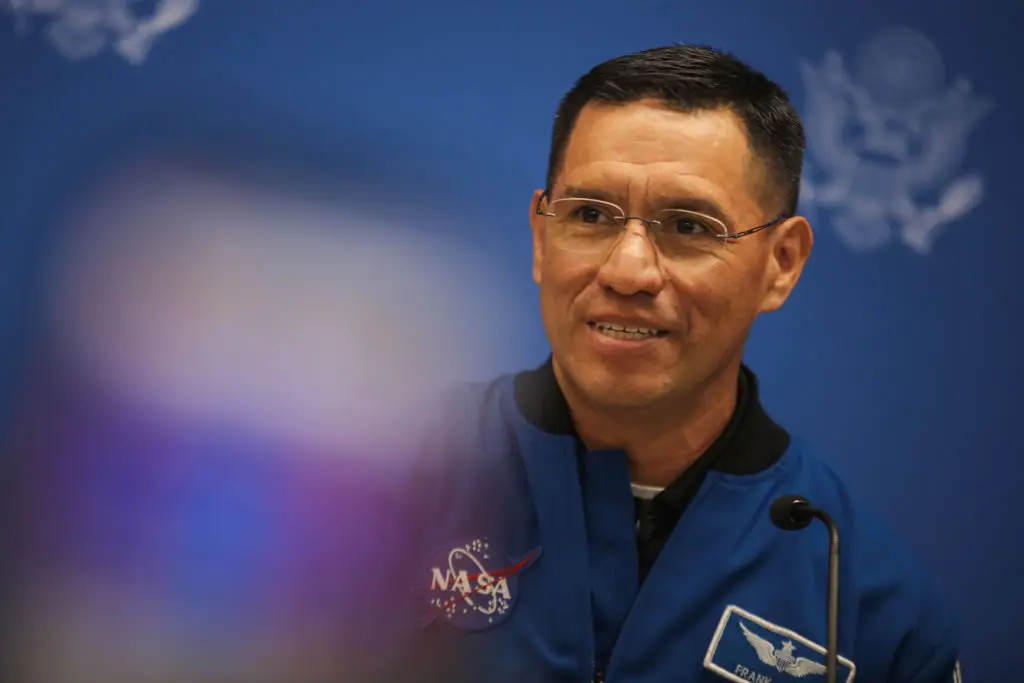
On 27 September 2023, Frank Rubio returned to Earth after a whopping 371 days in space.
The NASA astronaut set a new record by achieving the longest single spaceflight by an American – just two months short of the longest ever spaceflight by a human achieved by a Russian cosmonaut in the 90s with 437 days.
Now, it doesn’t take a genius to work out that spending over a year orbiting the Earth will take a bit of a toll on the body. And when Rubio landed back on our planet last year, he had to be lifted and carried from the capsule by the recovery teams.
I mean, the bloke had been in the low-gravity environment of the International Space Station (ISS) for a real hot minute. So, it’s fair to say there’s quite a lot that happens to an astronaut’s body physically when they return to Earth.
Advert

Weight loss
Of course, NASA does its best to make sure astronauts are eating nutritiously while they’re up in space. But being up there can still affect their bodies.
When astronaut Scott Kelly took part in a study of the effects, after staying onboard the ISS for 340 days, he lost seven percent of his body mass.
Muscles and bones
Pretty similarly, as laid out by the BBC, after just two weeks in space, muscle mass can fall by as much as 20 percent.
Plus, for every month they spend up there, astronauts can lose one to two percent of their bone mass and up to 10 percent over a six-month period.
So, to try and combat this, they do two-and-a-half exercise and intense training each day on the ISS as well as taking diet supplements.
Plus, the lack of gravity actually means astronauts often end up growing a little taller, with Rubio himself saying he thought his ‘spine has extended’.

Eyesight
While you’re in space, more blood can get into the head than normal thanks to the lack of gravity. And sometimes, some of it can pool at the back of the eye, leading to changes in eyesight.
Usually, the vision changes reverse for astronauts within roughly a year of being back on Earth but for others, they can be permanent.
Plus, the galactic cosmic rays and energetic solar particles can affect the eyes with some astronauts reporting seeing flashes of lights in their eyes.
Skin
In the study with Kelly, his skin was found to have heightened sensitivity and a rash for about six days after getting back on this planet.
Friendly bacteria
We all know by now that to have a good level of health, we need a good makeup and diversity of microorganisms living in our bodies.
The study with Kelly found that the bacteria in his gut had altered profoundly compared to before he left Earth. I mean, it's not totally surprising giving the change in food.
However, being exposed to radiation, drinking recycled water and changing activity probably played a role too.